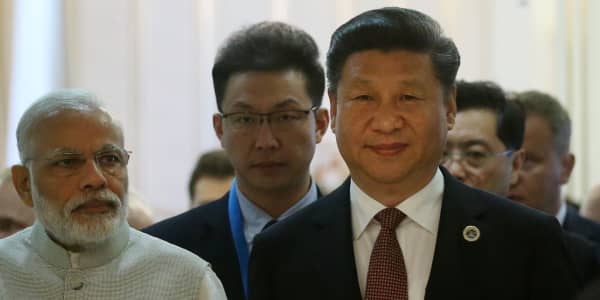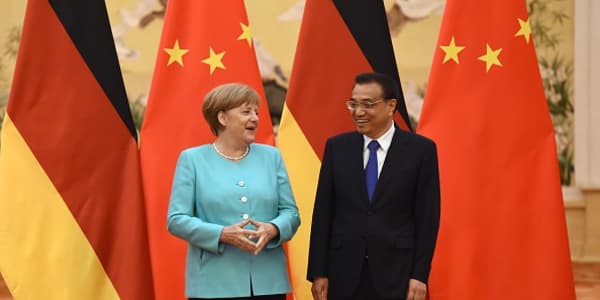

The Organisation for Economic Co-operation and Development has piled pressure on the Group of 20 to come up with an urgent policy response to stuttering global growth, adding to a call from the International Monetary Fund as leading finance ministers and central bankers meet in Shanghai.
Highlighting the turbulent state of the world economy and markets, OECD secretary general Angel Gurria said in Shanghai on the sidelines of the G-20 meeting that growth was still muted even eight years after the global financial crisis.
"The problem is structural reforms are decelerating just at the time when they should be accelerating," he said.
"We are in the eighth year (after the global financial) crisis and we have not reached the 4 percent cruising speed that we had before the crisis...the speed, the appetite, the courage for reforms has waned; we should pick it up and do exactly the opposite," he added.
Central bankers he said, "have done almost as much as they could" and it should now be up to governments to stimulate the private sector so that it would invest again.
Gurria's comments come as representatives of the G-20 – the group of the world's leading developed and emerging economies – meet in China's financial capital on Friday to survey the world's economic landscape, and two days after the IMF called for "multilateral actions to boost growth and contain risk," particularly through fiscal stimulus.
The IMF noted that a promise made by the G-20 in 2014 to boost global growth by an extra 2 percent by 2018 was set to add only 0.8 percent, based on the measures that countries had implemented so far.
The OECD is tasked with monitoring reforms implemented by the G-20 to help the group keep its 2014 promise on growth. The organization on Friday released an interim report on economic policy reforms.
"Even though progress is made in tackling some of the main challenges, the slowdown in the pace of reforms observed in 2013-14 has continued in 2015, even after taking into account measures that are in the pipeline but that have yet to be fully implemented," the report said.
The OECD said that the pace of reform was generally higher in Southern European countries like Italy and Spain, than among Northern European countries. Outside Europe, the reform leaders were Japan China, India and Mexico.
Japan has made clear its desire for a stronger group solution at this G-20 meeting.
Stimulating growth a Catch-22
With its own central bank moving to negative interest rates last month to what some commentators have said was little effect,Japan's Finance Minister Taro Aso pledged to push for a group response to calming current global market turmoil, set off at the turn of the year by growing fears China's economic slowdown would spread worldwide.
.But U.S. Treasury Secretary Jack Lew has played down the chances of coordinated action by the G-20, telling Bloomberg TV on Wednesday that a "crisis response" should not be expected because the current environment was not a crisis situation.
Productivity–a central ingredient to economic well-being—has been decelerating in the majority of countries, with the slowdown going about 15 years, at least in advanced economies. But finding a solution was not straightforward, according to the OECD report released Friday.
"On the one hand, demand policies alone will not restore sustainable growth; but on the other hand, policies to strengthen competition and innovation, spur job creation and repair financial systems to fund investment will only yield results if there is enough growth, " the report said.
Against the backdrop of "subdued global economic prospects", countries should prioritize reforms that would spur employment, productivity and support activity in the short-term. These include public infrastructure investment and the reduction of barriers to entry in services sectors with pent-up demand, it said.
China needed to shift to new sources of growth as it faced a slowdown in its traditional manufacturing powerhouse; capital knowledge, more efficient allocation of resources for enterprises and human capital development was key, the OECD said.
In the advanced Asian economies of Japan and South Korea, productivity in services was "particularly low", relative to manufacturing. The OECD recommends reducing regulatory barriers to competition and innovation in network industries as well as professional services and retail distribution to improve the situation.
Ageing populations in both countries were also dragging down productivity and there was a need to boost full-time labor participation by women by introducing a working environment the helped reconcile work and family responsibilities, the OECD added.
- Eunice Yoon and Reuters contributed to this report.






